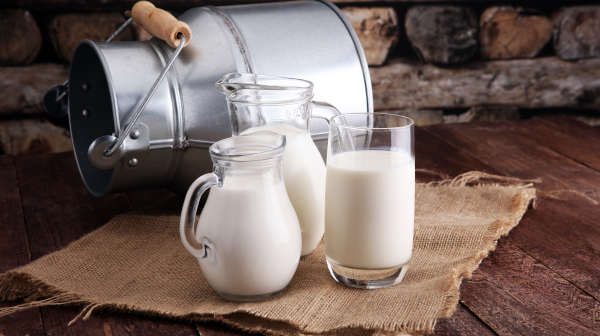Milk has long been a dietary staple, from a warm glass at bedtime to a swimming pool for warm cookies.
But these days, milk has lost its luster for some people. According to the American Farm Bureau Federation, American milk consumption declined significantly between 2012 and 2016.
There are a variety of factors that could be behind this decline. With so much focus on healthier eating and cutting back on saturated fat, some people might wonder if cow’s milk is the best dietary choice. To help you decide the best option for you, here is a rundown of the health benefits of milk and some popular alternatives:
Cow’s milk
Cow’s milk has been the gold standard for some time because it packs a nutritional punch. It is one of the best ways to meet your daily calcium needs, which is vital for building strong bones and can help prevent osteoporosis later in life. Milk also contains protein, potassium, phosphorus, magnesium and other vitamins and minerals. A cup of nonfat milk has about 80 calories, eight grams of protein, about 300 milligrams of calcium, and 30 percent of the daily vitamin D requirement.
“Cow’s milk is a good source of protein, calcium and vitamin D, but drinking dairy isn’t the only way to get these nutrients in your diet,” says Dan Bushnell, administrator at Gramercy Court Assisted Living. “If you are skipping cow’s milk, make sure the substitute you choose can provide adequate nutrition, or find these nutrients in other animal or plant sources.”
Soy milk
Soy milk has been a popular dairy alternative for some time. It is lower in saturated fat and cholesterol but still provides a good amount of protein and contains fiber and important B vitamins. It is often fortified with calcium and vitamin D as well. One cup of unfortified soy milk contains about 130 calories, 1.5 grams of fiber, 4 grams of fat, about 8 grams of protein, and 60 milligrams of calcium. It is important to note that these amounts can vary between brands and depend on whether the milk is fortified, so be sure to check the label.
Almond milk
For nut lovers, almond milk can be a suitable substitute. It works well in cooking and adds a nutty flavor to drinks. Almond milk is not fat-free, but it contains healthy monounsaturated and polyunsaturated fats. It is also low in carbohydrates but high in vitamin E. One cup has about 30 calories, 2.5 grams of fat, and 1 gram of protein. Like soy milk, many types of almond milk are fortified, so check the label for added calcium and vitamin D.
Oat milk
Oat milk is relatively new on the scene and is another dairy-free alternative. You might use it in your coffee or smoothie, as it has a creamy texture that works well with these foods. It can also be used as a milk substitute in cooking and baking. A cup of oat milk has about 130 calories, 2 grams of fat, and 4 grams of protein. As with other non-dairy options, check the label for fortified amounts of calcium, vitamin D, and other nutrients.
Cow’s milk really can do a body good, but it isn’t the only option anymore. These days, you can find a wide range of animal and plant milk to suit your fancy. If you want to drink cow’s milk, you can do so knowing you are giving your body important vitamins and minerals. It may be difficult to replace these nutrients if you don’t want to consume dairy, but with a little work and research, you can safely find another drink that suits your fancy.
A version of this article was published by The Daily Herald. It has been republished here with permission.




